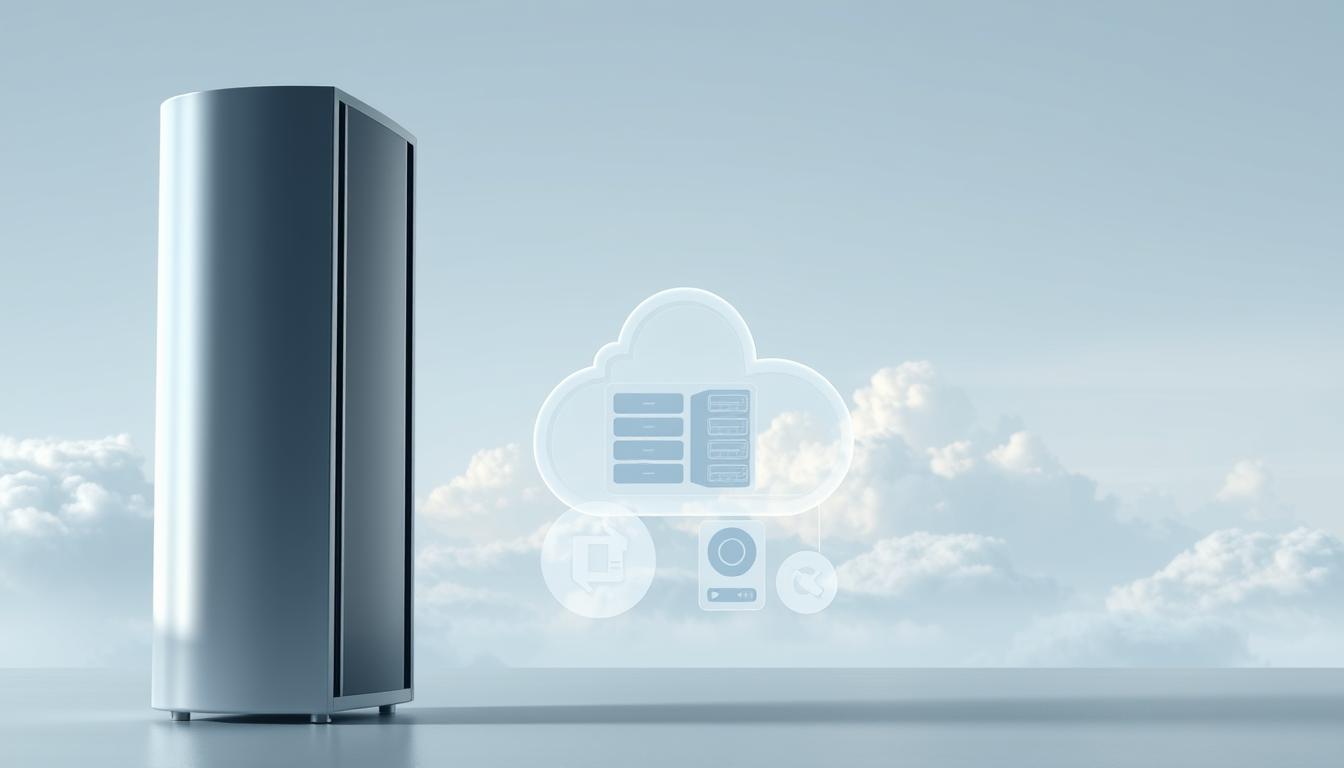In the realm of cloud technology, numerous misconceptions about cloud servers prevail. It is imperative to discern fact from fiction to ensure informed IT infrastructure decisions. Misconceptions surrounding cloud servers can be detrimental, yet grasping the true essence of cloud computing is pivotal. This understanding can significantly elevate your organization’s operational efficiency, scalability, and security.
Investigating prevalent misconceptions about cloud servers unveils their potential benefits for your enterprise. These myths often arise from a dearth of knowledge about cloud technology, resulting in misconceptions regarding its capabilities and constraints. As you navigate the domain of cloud computing, acquiring a comprehensive grasp of cloud servers’ benefits and realities is crucial. This knowledge empowers you to make strategic IT infrastructure decisions, thereby distinguishing fact from fiction in the context of cloud servers.
Understanding What Cloud Servers Are
The cloud server definition necessitates an exploration into the virtual realm of computing, where resources such as storage, processing, and networking are accessible on demand. This paradigm shifts the traditional server model, offering a scalable solution that accommodates the dynamic needs of businesses across various spectrums. The inherent flexibility of cloud servers empowers organizations to adapt their infrastructure in real-time, thereby optimizing operational efficiency and cost-effectiveness.
In the dichotomy of cloud vs traditional servers, a nuanced analysis reveals distinct advantages and disadvantages. Traditional servers, anchored in physical environments, necessitate manual intervention for maintenance and upgrades, a task that can be both time-consuming and resource-intensive. Conversely, cloud servers reside within a cloud computing ecosystem, where scalability and minimal maintenance are hallmarks. The following distinctions underscore the superiority of cloud servers in modern computing landscapes:
- Scalability: Cloud servers can be effortlessly scaled up or down to align with fluctuating demands.
- Maintenance: The cloud provider assumes responsibility for upgrades and repairs, thereby reducing the burden on the user.
- Cost: The pay-for-what-you-use model of cloud servers offers substantial cost savings, eliminating the need for capital expenditures on underutilized resources.
By delving into the cloud server definition and the contrasting attributes of cloud vs traditional servers, businesses can make an informed choice. Whether the objective is to enhance scalability, reduce costs, or streamline maintenance, cloud servers emerge as a compelling alternative. Their adaptability and cost-effectiveness make them an indispensable component of contemporary IT strategies.
Myth 1: Cloud Servers Are Not Secure
The notion that cloud server security is inadequate is a pervasive concern among individuals and enterprises. This apprehension stems from the belief that data stored in the cloud is susceptible to cyber threats. However, this misconception can be dispelled by recognizing the comprehensive security protocols employed by cloud service providers to safeguard your data.
Cloud providers address cloud security concerns with utmost seriousness, deploying a suite of security measures to safeguard your data’s integrity. These protocols encompass encryption, firewalls, and access controls, collectively designed to thwart unauthorized access to your data.

Furthermore, cloud providers must adhere to stringent regulatory standards, such as HIPAA and PCI-DSS, to ensure the security and integrity of sensitive data. These compliance standards serve as a testament to the cloud providers’ commitment to data security, thereby alleviating concerns when storing and processing data in the cloud.
Key security measures implemented by cloud providers include:
- Regular security updates and patches
- Monitoring for suspicious activity
- Encryption of data in transit and at rest
- Access controls, such as multi-factor authentication
By comprehending the security measures in place, you can confidently entrust your data to the cloud, assured that cloud server security is a paramount concern for cloud providers.
Myth 2: Cloud Solutions Are Too Expensive
The notion that cloud solutions are prohibitively expensive is a pervasive misconception. This belief often arises from a misinterpretation of the cost framework. The initial outlay for cloud infrastructure may appear substantial, yet the long-term cloud cost savings are considerable.
Cloud computing operates on a pay-for-what-you-use paradigm, obviating the need for substantial initial investments. This model fosters adaptability and scalability, appealing to enterprises of varying scales. Moreover, cloud service providers frequently deploy scalable pricing structures, enabling adjustments in resource allocation in tandem with business expansion.
Noteworthy advantages of cloud solutions encompass:
- Reduced upfront costs
- Scalable pricing models
- Increased flexibility and scalability
Assessing cloud server costs necessitates a comprehensive evaluation of total cost of ownership, encompassing maintenance, upgrades, and support expenditures. Such an approach facilitates a more nuanced decision-making process regarding the suitability of cloud solutions for your enterprise. Given the potential for substantial cloud cost savings, it is imperative to investigate available options and ascertain how cloud computing can enhance your organization’s operational efficiency.
Myth 3: Data Is Always Vulnerable in the Cloud
The notion that data is perpetually susceptible in the cloud is a pervasive concern, often exacerbated by high-profile breaches. However, these incidents are frequently the consequence of human frailties, such as inadequate passwords or phishing, rather than inherent system weaknesses. This underscores the critical need for stringent security protocols to mitigate the risk of data compromise.
Cloud service providers proffer advanced cloud backup and recovery mechanisms, pivotal for maintaining business continuity in the face of calamities. By availing these solutions, you can safeguard your data against cloud data vulnerability, thereby preserving its integrity. The advantages of such solutions are manifold:
- Automated backups to prevent data loss
- Secure data storage to protect against unauthorized access
- Quick recovery options to minimize downtime
By grasping the root causes of data breaches and deploying efficacious security measures, you can significantly reduce the likelihood of cloud data vulnerability. Cloud providers are dedicated to safeguarding your data, fostering a collaborative environment where security and reliability are paramount.

Myth 4: Cloud Computing Is Only for Big Businesses
As a proprietor of a small enterprise, the notion that cloud computing is exclusively for large corporations may deter you from its myriad advantages. Cloud servers, however, democratize access to technological prowess, enabling small businesses to rival their larger counterparts without incurring exorbitant expenses.
The hallmark of cloud servers is their scalability. As your business expands, you can effortlessly scale your resource allocation to accommodate the burgeoning demand. This flexibility empowers you to adapt to market fluctuations with unparalleled agility, a critical advantage for small businesses seeking to maintain a competitive edge.
The principal benefits of cloud servers for small businesses encompass:
- Reduced upfront costs: Cloud servers obviate the need for substantial investments in hardware and software.
- Increased flexibility: Accessibility from anywhere, at any time, is facilitated by cloud servers, provided there is an internet connection.
- Improved collaboration: Cloud servers streamline collaboration with team members and partners, irrespective of their geographical location.
Adopting cloud servers for small businesses unlocks the potential for growth and success. Do not allow misconceptions to impede your progress. Investigate the potential of cloud computing for your small business today.
The Future of Cloud Technology: What You Should Know
In the ever-changing realm of cloud computing, it is imperative for enterprises to remain abreast of the latest trends and innovations. The advent of artificial intelligence (AI) and machine learning (ML) heralds a new era, while the proliferation of edge computing and serverless architecture promises transformative potential. Grasping the trajectory of cloud technology enables businesses to seize forthcoming opportunities and adeptly navigate impending challenges.
Embracing the Evolving Cloud Ecosystem
The cloud ecosystem is undergoing a rapid expansion, with a plethora of new services and solutions being introduced. The integration of AI and ML into cloud platforms is revolutionizing automation, decision-making, and customer engagement. Furthermore, edge computing is redefining data processing and analysis, facilitating real-time insights and minimizing latency.
Adaptability and Agility in the Cloud
As the cloud continues to evolve, businesses must cultivate adaptability and agility to remain competitive. By embracing cloud technology and staying at the forefront, organizations can ensure they remain nimble and responsive to shifting market demands. This necessitates exploring novel cloud-based tools, optimizing cloud infrastructure, and upskilling the workforce to harness the latest cloud capabilities.
